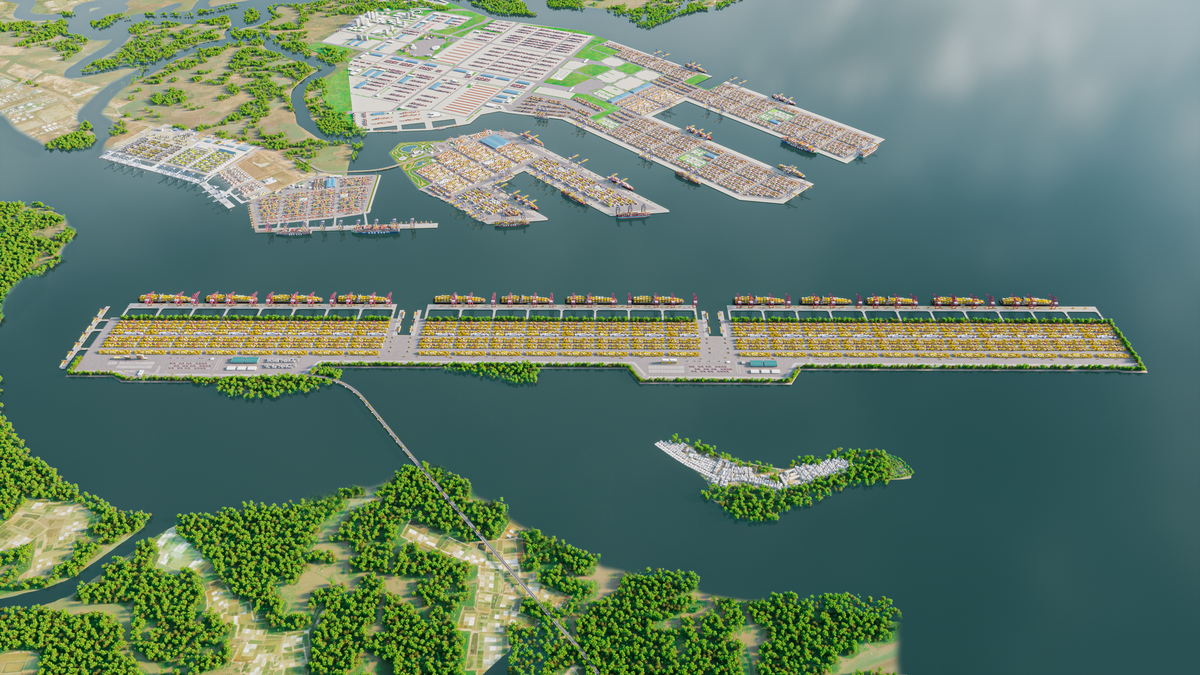Vietnamese Prime Minister Pham Minh Chinh on Thursday signed a decision approving the investment policy for the Can Gio International Transshipment Port project in Ho Chi Minh City.
With an estimated investment of US$4.5 billion, this project marks a significant milestone in Vietnam’s maritime economic development strategy.
The Can Gio International Transshipment Port will be strategically located at the mouth of the Cai Mep-Thi Vai River in Ganh Rai Bay of outlying Can Gio District.
This mega-project aims to establish an international transshipment hub, providing world-class container port services, seaport facilities, and associated logistics services.
Spanning an area of 571 hectares, the port will feature a 7.2-kilometer-long infrastructure and 6.8 kilometers of wharves upon completion.
It is designed to accommodate mother ships up to 250,000 DWT, feeder ships with a tonnage of 10,000-65,000 DWT, and barges up to 8,000 metric tons.
The future port is expected to handle a throughput of 4.8 million TEUs by 2030, increasing to 16.9 million TEUs by 2047.
Once operational, it is projected to directly employ 6,000-8,000 workers, with tens of thousands more benefiting from associated logistics and service industries.
An investor consortium, including Saigon Port JSC and Terminal Investment Limited Holding S.A. -- a subsidiary of Mediterranean Shipping Company (MSC) -- has proposed a plan for this significant investment.
MSC, headquartered in Geneva, Switzerland, is the world’s largest shipping line with an annual transport capacity exceeding 23 million TEUs, accounting for 18 percent of global shipping capacity.
The project’s investment cost, based on feasibility studies and proposals, exceeds VND113.5 trillion ($4.5 billion), which will be invested in two phases of the project, with the first lasting from now until 2030 and the second from 2030 to 2045.
The project is set to operate for 50 years from the date of the investment policy decision.
Its implementation will adhere to regulations on investment disbursement timelines and investor selection as stipulated in Resolution 98 of Vietnam’s legislative National Assembly, which outlines pilot policies for Ho Chi Minh City’s development.
Key conditions for the project include alignment with national and regional planning, approval for land-use changes, including forest land, completion of environmental protection procedures, and adherence to legal requirements for technology usage.
Investors are prohibited from transferring the project within the first five years of obtaining the investment registration certificate, with subsequent transfers subject to approval by local authorities.
In addition, any issues arising during implementation related to national defense, security, or foreign ownership transfers will require the consent of the Ministry of National Defense, the Ministry of Public Security, and other relevant agencies.
If cultural relics or artifacts are discovered during construction, authorities and local cultural departments must be notified so that appropriate actions can be taken.
Like us on Facebook or follow us on Twitter to get the latest news about Vietnam!





















































